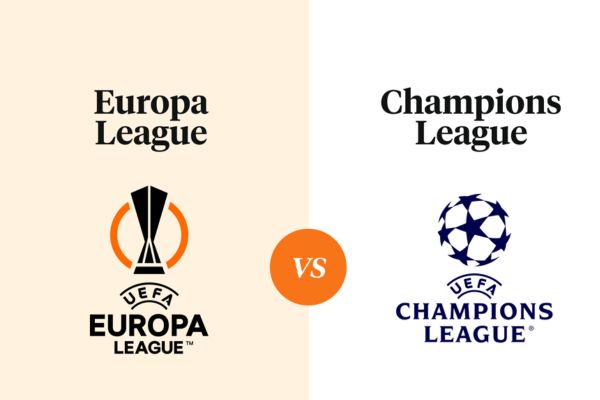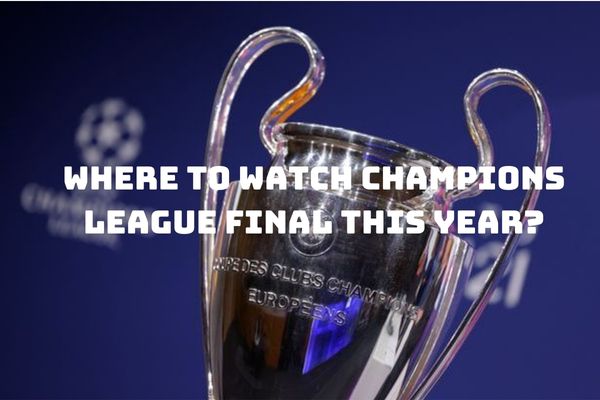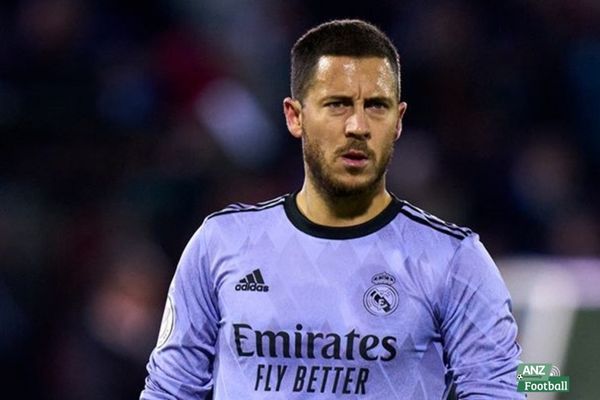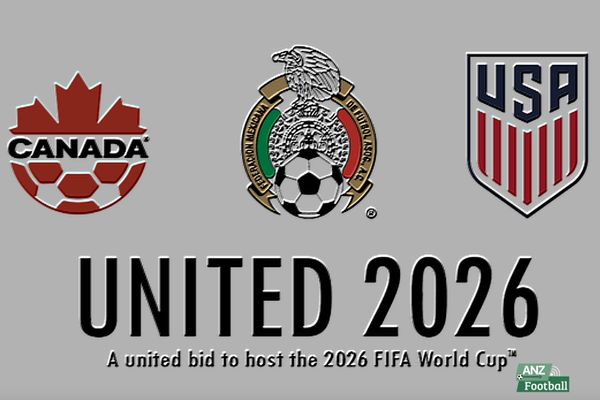Why Is Serie A So Poor?
2 years ago
There is no denying that there used to be a Serie A more attractive than the Premier League now. In the first 10 years of the 21st century, teams from the boot-shaped country reached the final 5 times and 3 of them left with the Champions League in hand. At that time, the absolute power was not in the hands of Juventus, Inter Milan, or AC Milan and the competition came from many different names. Serie A emerged with a group of seven sisters backed by bosses who were not afraid to invest and were willing to fight hard for the title.
However, until now, Italian football has not retained the flashy position as in the early 2000s. Serie A is currently seen as a league that lacks both competitiveness and money. So, what is the reason why a tournament with teams that used to be world football monuments came into shortage?
Let’s learn more with anzfootball!
The gloomy numbers of the 2022/23 season
During the winter market in January 2023, clubs in England spent more than 800 million Euros to upgrade the squad - a crazy number. In contrast, Serie A clubs only churned out £33m in the same period - less than the €50m that Bournemouth, who are at the bottom of the Premier League table, spent in the winter transfer window.
At one time AC Milan had a Dutch trio consisting of Van Basten, Ruud Gullit and Frank Rijkaard. Juventus have Platini. Even clubs like Udinese had Zico, Roma have Rudi Voller. But now, Serie A clubs can only recruit players who are in liquidation in England or other leagues, or sign players who have not lost their reputation and hope that one day they will become stars.
In 2022, things were not as gloomy as they are now. Juventus in the winter transfer window last season still spent more than £80 million to bring Dusan Vlahovic from Fiorentina. This year, things have gone a lot worse. With a tournament that only spent more than 30 million euros to buy, it is impossible to remain competitive with other top leagues.
The reasons leading to the gloom of Serie A
Punishment of top league club
Part of the reason may be because Juventus - the leader of Serie A for many years - is in crisis. From 2010 to 2018, Juve was the most successful team in the country, including in the domestic league or European Cup. Around the same time, Bianconeri's home ground was expanded, revenue brought in more, had an image brand for themselves and maintained those things.
Since Juventus brought in Ronaldo in 2018, Inter and Milan have also started to rise again. Next, teams like Napoli or Roma also began to struggle to compete, creating more attraction for the tournament.
Recently, the Old Lady was accused by the Italian Football Federation of fraud in the transfer.
A series of senior personnel under the leadership have resigned, pushing the team into the corner. The legal battle is expected to continue in the near future and the deduction of 15 points with Juve is only the first step.
This reminds me of Calciopoli in 2006. If such a black night comes to Italian football, the collapse of Juventus will also be like a domino effect that will exhaust the whole tournament. In the face of Calciopoli's influence, including Inter's Champions League title in 2010 to date, there is no team to lift the highest title in Europe. The only highlight of Italian football is the Euro 2020 title.
However, soon after, they could not win tickets to the 2022 World Cup. Napoli are now closer to winning their first Scudetto of the 21st century - their first silverware in 33 years. The attractiveness of this tournament will be great if the clubs are invested properly. But Napoli's dominance this season also shows how much Juventus has lost since Covid-19 and Ronaldo's departure.
The departure of the stars
Compared to leagues like the Premier League on tv, a major disadvantage that teams in Serie A have suffered is the revenue from television rights after Ronaldo left the league. Outside the UK, teams enjoy huge television royalties and, as a result, their gross revenues are high. This allows them to continue to spend money on buying and paying players.
AS's sporting director general Roman Tiago Pinto once explained that the competitive potential of the better teams in Serie A live is only equal to the newly promoted teams in the Premier League. Therefore, it is difficult for Italian representatives to compete to bring back the top names in the current economic context.
The impact of declining revenue
Deloitte recently released its annual report on football clubs generating the highest revenue in the world.
In the list of 20 teams, we must scroll down to 11th place to see the first name of Serie A, which is Juventus with 400.6 million Euros.
Currently, Juventus remains the biggest revenue-generating football club in Italy. However, the team did not make Deloitte's top 10 for the first time since the 2017/2018 season and the team is under strong financial pressure in recent times when it has suffered heavy losses in two consecutive seasons. The most recent amount went up to €254 million - the largest deficit ever recorded in Serie A history.
The next team in Deloitte's rankings is Inter Milan - the reigning Italian Super Cup champion. The club has consistently maintained 14th place in this table for the fifth consecutive year. Milan earned €308 million last year, slightly declining by 7% compared to 2021.
When the revenue cannot increase, the stadiums are not repaired, the recruitment of top stars will be even more difficult for Italian teams. When it is impossible to have quality players to increase the competitiveness of the tournament both in the European arena, it is difficult for teams to attract attention and earn more money. It's been a vicious cycle in Italian football over the years.
Effects of Financial Fraud Laws
Finally, it comes with the financial fraud story that has been and will be greatly affecting Italian football. A new fiscal fair play law is due to be introduced by UEFA in 2022, with one notable point being that the club's spending will not exceed 70% of its income. That number could rise in the coming years, including wages and depreciation of transfer fees, and possibly the cost of clubs renewing contracts with players.
In Italy, the majority of clubs now account for half of the revenue poured in and it is likely that many teams will have to cut their budgets significantly to not violate the new regulations, thereby ensuring the European Cup. One such example is Juventus. In fiscal year 2017/18, Bianconeri had a total turnover of €437.6 million, of which the salary fund was €236 million and excluding other operating expenses.
The Italian newspaper Corriere dello Sport criticized UEFA for protecting wealthy teams in England without encouraging development in other leagues. And this will be a massacre for the Italians because only Milan and Atalanta can guarantee this. With AC Milan, Zlatan Ibrahimovic's team only has a salary of 50.95 million euros thanks to the rejuvenation policy. In addition, with the return to the Champions League and new sponsorship contracts, Rossoneri revenue reached 216.3 million euros in the 2020-2021 fiscal year.
With Atalanta, previously Gazzetta dello Sport had satirical articles about the financial difference of the Bergamo team compared to the Paris Saint-Germain giant when the salary of all players of the blue and black stripes team was lost to Neymar alone. The Brazilian superstar earns 36.8 million euros a year, while all Atalanta players receive 16 million euros.
To keep players, a good salary is essential. Looking at the payroll of clubs in Serie A today, the salary fund numbers have not decreased but also increased compared to the 2020-2021 season. However, this continues to put pressure on the teams in Italy as they have to find ways to increase revenue to make up for the lack.
Conclusion
The challenges are huge for Serie A. The fact that the value of the tournament is low is also a good stage to receive investments. The world's oldest financial services company, JPMorgan Chase & Co. has written to the Italian football federation to express preliminary interest in supporting the development of Serie A's media business.
JPMorgan is expected to provide between €700 million and €1 billion to support the league, and Serie A officials are also mulling over the possibility. In 2021, JP Morgan supported teams looking to form the European Super League, which collapsed due to opposition from fans and politicians across Europe.
With its great financial potential, the bank from the United States can help Serie A overcome the immediate difficulties and even partially revive. I'm really looking forward to what will happen to the teams in Italy. If this happens, it will be a huge hit for one of Europe's biggest football platforms.
Other news

Champions League vs. Europa League: Which One is Better?
2 years ago
Champions League vs Premier League: What Is The Key Difference?
2 years ago
Where to watch the Champions League final? Ultimate Guideline 2023
2 years ago
Top 5 Best Strikers In Europe 2023
2 years ago
Eden Hazard Biography and His Up and Down Football Career
2 years ago